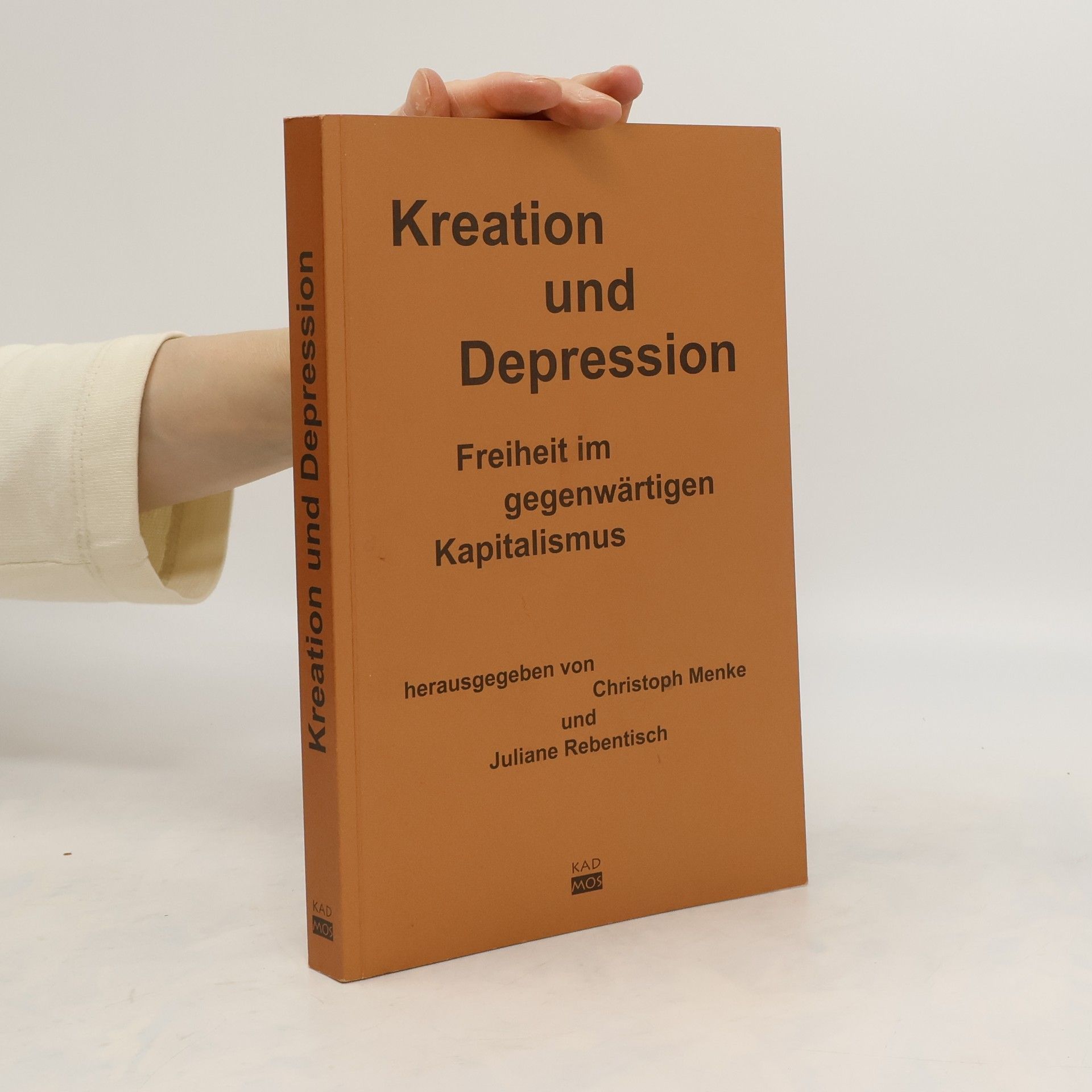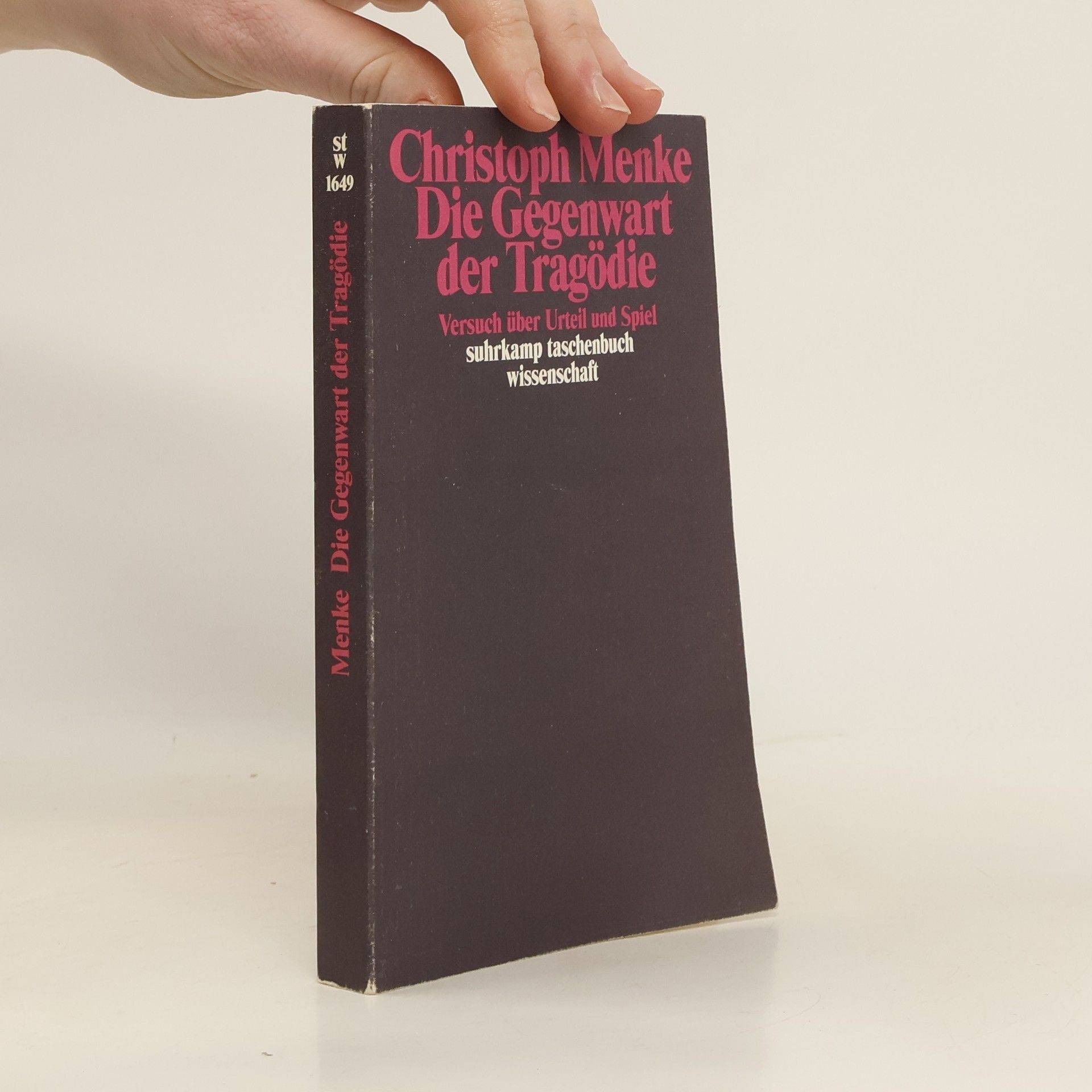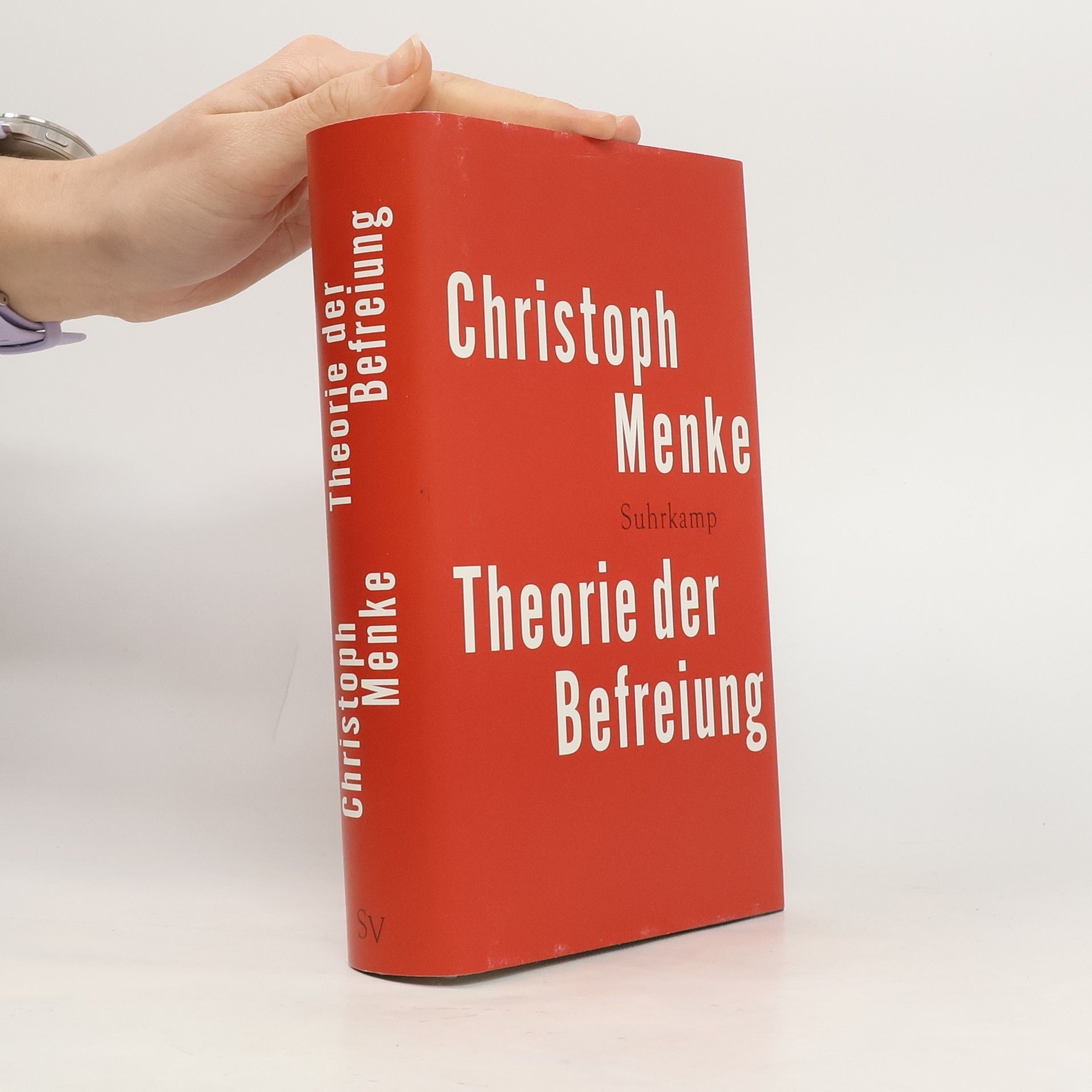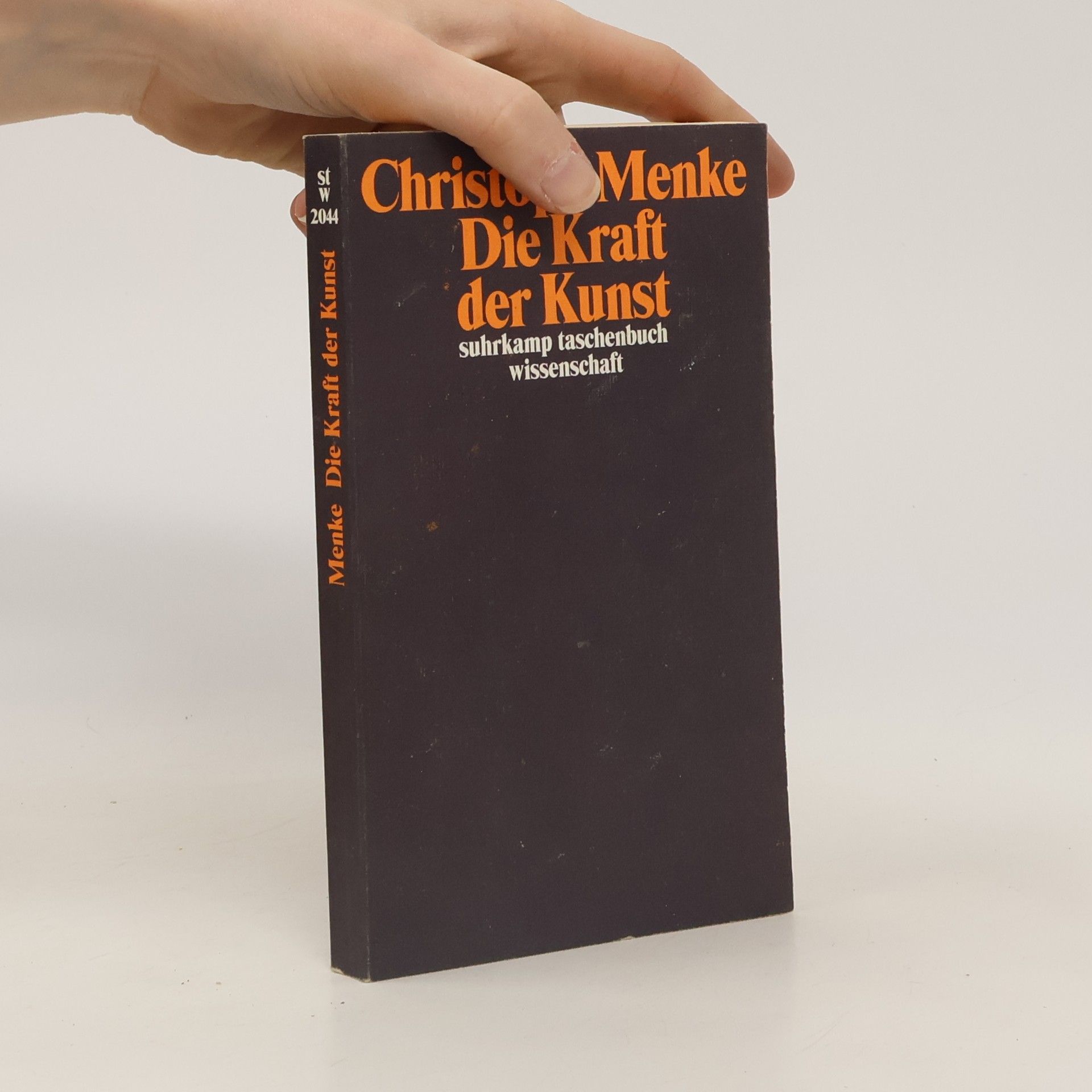Wir leben in einer Zeit gescheiterter Befreiungen. Denn bei Lichte besehen haben alle Befreiungsversuche früher oder später neue Formen der Herrschaft und damit der Knechtschaft hervorgebracht. Für Christoph Menke verlangt die Erklärung dieser Situation nach einer Umkehrung des Blicks. Anstatt uns einfach dem nächsten Befreiungsprojekt zuzuwenden, müssen wir analysieren, wie die bisherigen Befreiungsversuche verlaufen sind. Vor allem ihr Anfang ist dabei entscheidend – die gewöhnliche, aber faszinierende Erfahrung, dass eine Gewohnheit, die uns knechtet, plötzlich bricht. Sie zu bejahen heißt, in die Praxis der Befreiung einzutreten.
Christoph Menke Book order (chronological)






Die Digitalisierung von Messeveranstaltern
Eine Untersuchung anhand des Geschäftsmodells
- 396 pages
- 14 hours of reading
Die Auswirkungen der Digitalisierung auf die Wertschöpfung von Messeveranstaltern stehen im Mittelpunkt dieser Analyse. Christoph Menke untersucht detailliert, wie digitale Entwicklungen die Branche beeinflussen und leitet daraus spezifische Management-Implikationen ab. Zudem wird die Wertschöpfungssystematik der Messeveranstalter umfassend dargestellt, während die Aspekte der Digitalisierung in klaren Modulen strukturiert und definiert werden. Die Arbeit bietet somit eine tiefgehende Einsicht in die Herausforderungen und Chancen, die die Digitalisierung für die Messebranche mit sich bringt.
Critique of Rights
- 350 pages
- 13 hours of reading
The declaration of equal rights arguably created the modern political community. But this act of empowering individuals caused the disempowering of the political community. Exposing this, Menke opens up a new way of understanding rights that no longer involves the disempowering of the political community--
Die Kraft der Kunst
- 179 pages
- 7 hours of reading
Noch nie war die Kunst sichtbarer, präsenter und prägender als heute und noch nie war sie zugleich so sehr ein bloßer Teil der gesellschaftlichen Prozesse: eine Ware, eine Unterhaltung, eine Meinung, eine Erkenntnis, eine Handlung. Die gesellschaftliche Allgegenwart der Kunst geht einher mit dem zunehmenden Verlust dessen, was wir ihre ästhetische »Kraft« nennen können. »Kraft« – im Unterschied zu unseren »vernünftigen Vermögen« – meint hier den unbewussten, spielerischen, enthusiastischen Zustand, ohne den es keine Kunst geben kann. Die philosophische Reflexion auf diesen Zustand führt Christoph Menke zur Bestimmung ästhetischer Kategorien – Kunstwerk, Schönheit, Urteil – und zum Aufriss einer ästhetischen Politik, das heißt einer Politik der Freiheit vom Sozialen und der Gleichheit ohne Bestimmung.
Eigenverantwortung, Initiative, Flexibilität, Beweglichkeit und Kreativität sind heute entscheidende gesellschaftliche Anforderungen, die Individuen erfüllen müssen, um an der Gesellschaft teilzuhaben. Diese neuen Erwartungen haben das alte Disziplinarmodell ersetzt, ohne die Disziplin vollständig abzuschaffen. An die Stelle der Normierung des Subjekts nach gesellschaftlich vorgegebenen Rollenbildern ist der Zwang zur kreativen Selbstverwirklichung getreten, der unter dem Zeichen des Wettbewerbs steht. Einstellungen und Lebensweisen, die einst einen qualitativen Freiheitsgewinn versprachen, sind nun so eng mit der gegenwärtigen Form des Kapitalismus verbunden, dass sie neue Formen sozialer Herrschaft und Entfremdung hervorgebracht haben. Innere Leere, gefühlte Minderwertigkeit und Antriebsschwäche scheinen die Kehrseite der Erwartung zu sein, dass Individuen, unabhängig von ihren sozialen Voraussetzungen, flexibel und kreativ am gesellschaftlichen Reproduktionsprozess teilnehmen. Diese Entwicklung hat ein Verständnis menschlicher Freiheit in die Krise gestürzt, das aus ästhetischen Erfahrungen und Figuren gespeist wird. Aus der Perspektive der aktuellen Gesellschaftskritik ist die individualistische Auflehnung gegen das soziale Gesetz, wie sie in der 'Künstlerkritik' (Chiapello) formuliert wird, ebenso problematisch wie die romantische Tradition, in der sie verwurzelt ist. Der Band untersucht, wie aktuelle gesellschaftliche En
Die Menschenrechte sind in der Gegenwart zur schlechthin grundlegenden und weltweit gültigen politischen Idee geworden. Auch wenn ihre Geschichte sehr viel weiter zurückreicht, beginnt der eigentliche Aufstieg der Menschenrechtsidee erst nach dem Zweiten Weltkrieg: in Reaktion auf die "Akte der Barbarei" totalitäre Politik. Diese haben nicht nur die Praxis, sondern auch die Theorie der Menschenrechte vor grundsätzlich neue Herausforderungen gestellt, deren Umrisse in diesem Band erkundet werden. Es geht darin um philosophische Grundfragen der Menschenrechtsidee im Lichte gegenwärtiger politisch-moralischer Erfahrungen. Wie kann die politische Leitidee, dass alle Menschen als Gleiche zu berücksichtigen sind, heute verstanden, begründet und verwirklicht werden?
Die Gegenwart der Tragödie
Versuch über Urteil und Spiel
Die Gegenwart der Tragödie - dieser Titel soll eine Behauptung aufstellen: die Behauptung, daß es auch gegenwärtig noch Tragödien gibt; daß die Tragödie nicht, wie seit dem romantischen Beginn der Moderne unablässig wiederholt wird, »antiquiert« (Friedrich Schlegel) geworden ist."
Im Zentrum der ästhetischen Theorien Adornos und Derridas steht der Anspruch der Kunst auf Souveränität: Die Kunst überschreitet das ausdifferenzierte Gefüge der modernen Vernunft, indem sie gleichwohl ein Moment neben und unter anderen ist. Besonders die neueren hermeneutischen Ästhetiken haben deshalb in der Proklamation ästhetischer Souveränität eine Preisgabe der Autonomie der Kunst und ihre Gleichsetzung mit einer überlegenen Einsicht in die Verfaßtheit aller Vernunft gesehen. In einer Argumentation, in der sich Derridas Dekonstruktion und Adornos Negativitätsästhetik wechselseitig kritisieren und erhellen, wird ein Begriff ästhetischer Erfahrung entwickelt, der dem hermeneutischen Einwand begegnet. Kerngedanke dabei ist, daß die Kunst durch ihre Negativität eine vernünftig nicht bewältigbare Gefahr für unsere nicht-ästhetischen Diskurse darstellt.

